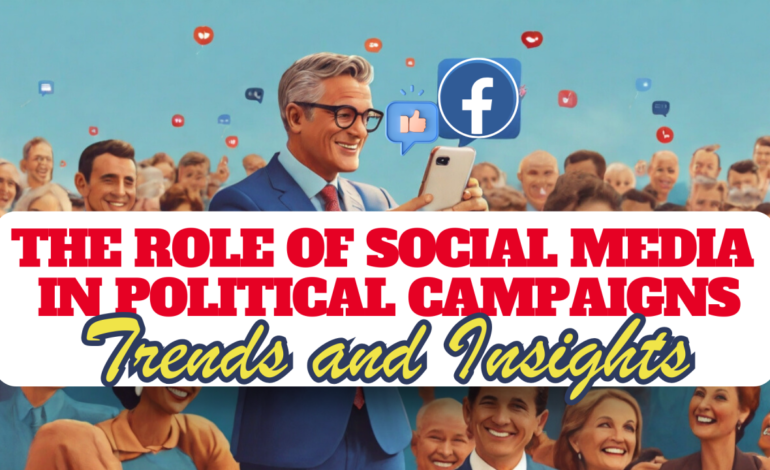
The Role of Social Media in US Politics: Pros and Cons of Digital Democracy
Social media has revolutionised political campaigns, providing candidates with a direct line to potential voters and allowing voters to engage more deeply in the political process. Platforms like Facebook, Twitter, Instagram, and YouTube have become essential tools for candidates and parties, enabling them to reach large audiences quickly.
Pros of Social Media in Politics
- Democratisation of the Political Process:
- Social media has levelled the playing field, allowing candidates to reach a wider audience regardless of their financial resources or political affiliation.
- It bypasses traditional media gatekeepers, offering unprecedented transparency and accessibility.
- Enhanced Voter Engagement:
- Platforms like Twitter and Facebook enable voters to interact with candidates, ask questions, and express their opinions, fostering a more dynamic and participatory political culture.
- Social media aids political activists in organising more effectively, leveraging networks to mobilise support and drive social and political change.
- Improved Access to Information:
- Voters can stay informed about political issues and access a diverse range of voices and perspectives.
- Sharing information among voters leads to a more informed and engaged electorate.
- Direct Engagement and Personalization:
- Social media allows candidates to engage directly with voters, addressing their questions and concerns, resulting in increased voter connection and investment in the political process.
- Candidates can share real-time updates on their views, values, and policies, fostering a more interactive relationship with supporters.
- Increased Political Participation:
- Social media reaches younger and more diverse voters, encouraging them to engage in the political process.
- It facilitates grassroots campaigns and social movements, enhancing overall political involvement.
- Mobilisation of Supporters:
- Campaigns can create and share engaging content, organising events and volunteer efforts more effectively through platforms like Facebook and Instagram.
- Social media simplifies fundraising from small donors, amplifying grassroots efforts.
- Shaping Public Opinion:
- Politicians use social media to craft messages and directly influence public opinion on various issues.
- Platforms facilitate personal engagement with voters, building trust and credibility.
- Increased Transparency and Accountability:
- Social media provides a platform for politicians to share updates and activities, increasing transparency.
- It empowers voters to hold politicians accountable and exposes corruption and unethical behaviour.

Cons of Social Media in Politics
- Spread of Disinformation:
- Social media can rapidly disseminate false information, impacting public opinion and undermining the democratic process.
- Algorithms prioritise engagement, often promoting sensational or inaccurate content.
- Political Polarisation:
- Algorithms create echo chambers, reinforcing existing beliefs and leading to polarisation.
- The spread of conspiracy theories and misinformation can radicalised individuals and deepen societal divisions.
- Privacy Concerns:
- Social media platforms collect vast amounts of user data, raising privacy issues.
- Instances like the Cambridge Analytica scandal highlight the potential misuse of data to manipulate political outcomes.
- Censorship and Free Speech:
- Social media companies face criticism for biassed content moderation and inconsistent application of policies.
- Balancing the moderation of harmful content with respect for free speech remains a contentious issue.

Conclusion
Social media has undeniably transformed US politics, enhancing voter engagement, mobilising supporters, and shaping public opinion. However, it also poses significant challenges, including the spread of misinformation, political polarisation, privacy concerns, and issues around censorship. To harness its positive potential while mitigating negative effects, a careful and balanced approach is essential.
Written By: Stephen Despin Jr.
Stephen Despin is a libertarian-conservative blogger and grassroots organiser with extensive experience in advocacy, campaigns, and lobbying. As the founder of Talk Policy, he has become a prominent voice in libertarian-conservative politics, skilled in digital organising and social media management. Stephen advocates for limited government, personal freedom, and individual responsibility, continuing to shape the libertarian-conservative movement.






